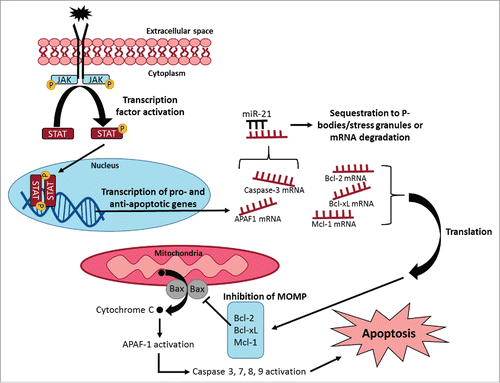Figures & data
Figure 1. Summary showing regulation of apoptotic signaling pathways in different subcellular organelles. Intrinsic or extrinsic signals may promote reversible protein phosphorylation of signaling molecules (e.g. Janus kinases and STATs) and activation of gene expression of pro- and anti-apoptotic proteins. Exported mRNA transcripts may be bound by microRNAs (e.g., miR-21) to direct transcripts for sequestration and degradation, or transcripts can be translated into pro-apoptotic (e.g. Bax, Bad) or anti-apoptotic (e.g., Bcl-2, Bcl-xL, Mcl-1) proteins. Pro-apoptotic proteins may be responsible for cytochrome C release and cysteine protease activation leading to apoptosis. Anti-apoptotic proteins may inhibit cytochrome C release during mitochondrial outer membrane permeabilization (MOMP). The relative levels of pro- and anti-apoptotic proteins control the fate of the cell.

